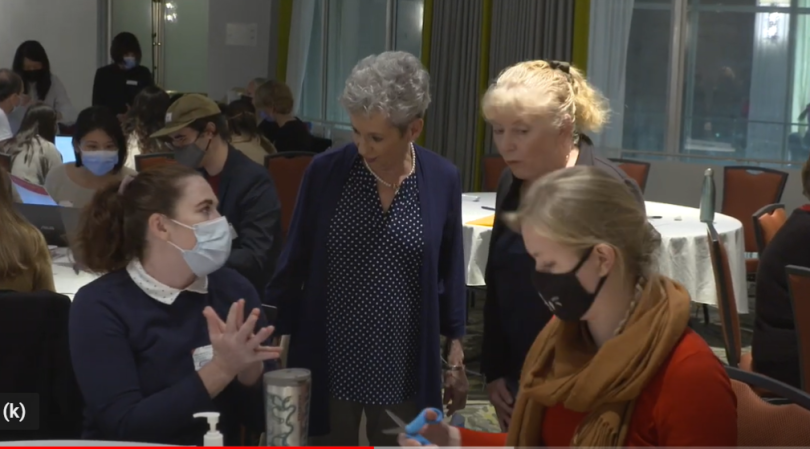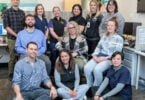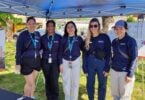An event to dream up innovative approaches to wound care has prompted an idea to bring a pop-up wound clinic to underserved people, right in their communities.
Skunkworks: Hacking Wounds recently gathered diverse minds to come up with ideas to target this area. Providence Research organized the event.
Getting out of your sandbox
The term ‘skunkworks’ originated in the 1940s as an alias for an American engineering lab that worked on top-secret and innovative programs at Lockheed Aircraft Corporation. Today, ‘skunkworks’ describes a project developed by a loosely structured group of people who identify issues and pilot creative solutions.
The wound-clinic team included people from several disciplines, from Providence Health nurses to students from UBC’s School of Biomedical Engineering.
“We kind of put a dream team together without knowing it,” says Lisa Maks, diabetes clinical nurse specialist with Providence Health.
“What really intrigued me about Skunkworks was bringing together people from different specialties and backgrounds, who shared the common goal of making a change,” says Theresa Khosrovi, a clinical nurse educator, also at Providence.
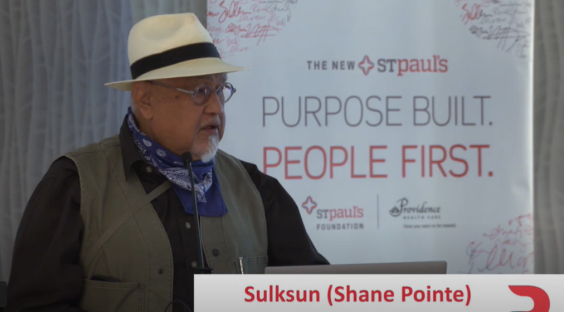
Each member brings different skills
Because they had unique experiences and skills, the participants learned from each other.
“My main takeaway is how helpful it is to step outside of your regular sandbox and to toss around ideas with other professions,” says Aggie Black, Director, Health Services and Clinical Research and Knowledge Translation at Providence Health.
The team took on the problem of how to help people underserved by the health care system to take care of their acute and chronic wounds.
Maks originally brought the problem pitch forward. She’s worked in diabetes care for 18 years, and has seen the impact that wounds have on patients’ quality of life. As soon as she heard about Skunkworks, which was an opportunity to work on a solution to possibly prevent wounds from escalating, she was in.
Repeat visits from patients who lack support
Working in the acute medicine unit at St. Paul’s Hospital, Khosrovi would see patients returning with unhealed wounds due to a lack of support. “That made me think, what I could do to solve this never-ending cycle so that these people could actually fully heal and live their lives to the fullest?”
The team pitched a pop-up clinic that would bring wound care directly to underserved populations. It would offer to-go kits for those who can’t wait or would rather do the dressing themselves. The team would bring care where people already are by partnering with existing services like shelters and soup kitchens. During the event they received feedback from patient partners and mentors that this is an important and unmet need.
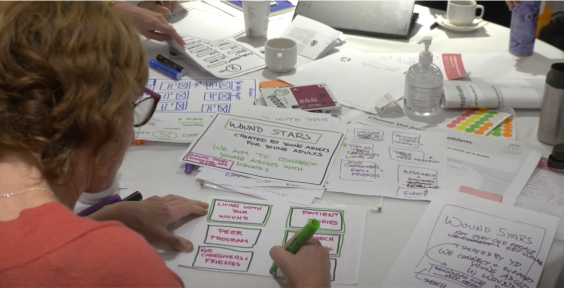
Benefits of treating wounds early
By catching wounds in early stages, they would prevent hospital admissions, readmissions, and escalations of care like amputations. The pop-up clinic is not meant to be the ultimate solution, but to gradually get everyone in need connected with the health care system and to more permanent services.
“Ideally, the goal would be to work ourselves out of a job,” says Black. “Until we have a perfect health care system, where everyone feels welcome and respected, we sometimes need to take care to people where they are.”
Focusing on a service, not an app
Unlike many of the other Skunkworks pitches, their idea was not about a new technology, app or device, but about a human resource-based service. Because their idea didn’t fall neatly into the parameters of the two available awards – the Technology Accelerator award or the Research and Innovation award – the team doubted they would win either award or the funding that would come with them.
Then the judges announced that they had created a new and third award, complete with a year of funding – the Social Justice Award. And the pop-up clinic won.

“Hearing our project get announced as the winner definitely made us feel appreciative and grateful to work in a health organization that truly supports social justice,” says Khosrovi.
Caring for patients “still falling through the cracks”
“I felt like the judges really saw what we were trying to get them to see – that this is a gap, and that we can provide an innovative solution, evaluate, and see if it makes a difference,” says Black. “Part of the social justice mission is taking a hard look at how we’re doing things, and how we could do them better. Who are the patients that are still falling through the cracks?”
Looking Back and Looking Forward
Skunkworks: Hacking Wounds was a unique way for people from across disciplines to put their heads together and come up with creative solutions to problems surrounding wounds. The ideas that came from this event were innovative and sparked inspiration across the board.
“It was a fabulous experience that I would do again in a heartbeat,” says Maks.

